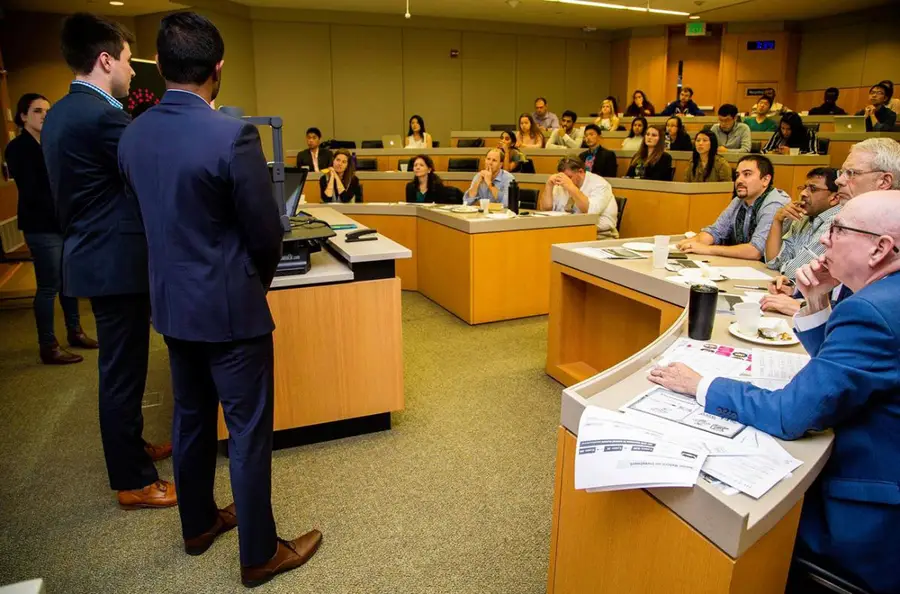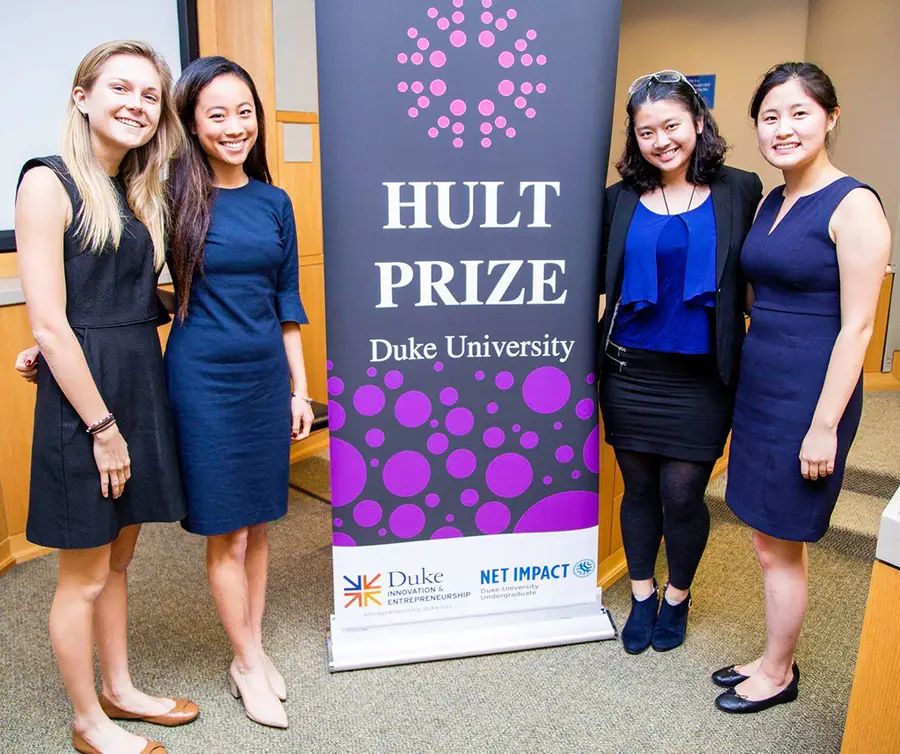As an expert on youth in the workforce, when asked to get involved with the Hult Prize @Duke—a competition among college students around the world to generate ideas that could create 10,000 jobs for youth within 10 years—I jumped at the opportunity to get on the court. Duke University seeded 17 teams of three to four students who had ideas they wanted to pursue. I was to serve as a judge (referee) for the “final four.” (I was disappointed not to have been given a striped shirt). The winner would continue to compete regionally and possibly internationally at the United Nations for $1 million to support their social innovation.
Besides being a student of the hit TV show, Shark Tank, I have long been interested in how to best generate, test and scale new ideas. In the 1990s, I was fortunate to have worked at Cisco Systems. It was such an exciting time. The decade commenced with 2.5 million Internet users and finished with 412 million users by the start of the new millennium. During this time, I was on a team that was developing and scaling a computer networking training program. Having spent much of my career in the nonprofit education arena, I was struck by how my tech colleagues approached problems. Fostering advances in the dynamic Internet space led them to think big and fast. In eight years, we advanced 64 pilot schools to 10,000 schools in 165 countries! Fast forward to today, and I serve as the General Manager of the RTI-led Global Center for Youth Employment (GCYE), a virtual learning and action center forging a unique alliance of development practitioners, universities, donors and corporations to nurture innovative youth employment solutions. We have been hosting idea-generating and supporting events to find proven and scalable solutions to empowering young people to succeed in the 21st century labor market.
Judging the Hult Prize at Duke
I must admit to being humbled by the stature of my fellow judges. Like my colleagues at Cisco, we were a diverse group. For example, Ryan Riegg and Christopher Gergen are two entrepreneurs who have shepherded companies to success and went on to launch social enterprises. Matt Nash from Duke’s Innovation & Entrepreneurship Initiative and Eric Mlyn from Duke Engage help students apply their talents outside the classroom. Anirudh Krishna teaches public policy and political science at Duke, focusing on why people are poor. Margaret Samuels, President of OE Enterprises, a local nonprofit serving the disabilities community, has a history of demonstrating how local business can profit while still helping people. The experience and knowledge of these judges proved to be an invaluable resource for these budding ideas.
The Duke Final Four
The final four teams highlighted ideas that were both rich and diverse.
First, there was Joblette, an idea designed to connect unemployed youth with e-learning and employment within the growing digital sector. The team of four women, proposed training in tasks related to micro-jobbing - data collection, cleaning and analysis. While enrolled in training, students would be engaged in real digital work, drawn from local and global businesses.
The Hadja Collective is an idea with its roots in Togo. After spending a semester in country, the students returned with a lingering problem on their minds — how subsistence farmers could be encouraged to join cooperatives and collectively create a stronger and more robust agricultural sector. This team tried to show how their innovative idea of a crowd-farming platform that linked female entrepreneurs, farmers and the global market could meet the objective.
Marikiti, which means “market” in Swahili, aims to provide artisans across African countries with education, access to finance intra-African trade opportunities and global markets. This team of three — two women from Kenya and one from Ghana — are passionate about helping artisans in their homeland to scale the sales of their products and crafts.
Finally, there was a new farm to table franchise idea, Rooftop Dining. What made this idea unique was not just the rooftop dining but the fact that your dinner was growing all around your table. Furthermore, youth would be recruited to maintain the kitchen gardens and serve the meals.
I walked away that evening with a few ideas of my own.
First, the importance of student experiences abroad. Many of the ideas were identified during the various opportunities that students had traveling and studying globally. Their ideas didn’t come from a book or newspaper headline. Many of the problems the students saw or learned about firsthand, and the challenges stuck with them. They returned to school eager to pursue a solution.
Second, there probably is no better place for leveraging differing skills or knowledge than a college campus. Your roommate might be a computer science major while you focus on international affairs. Maybe you also play a sport with a business major. The teams did not consist of students studying the same major. It is this type of “interdisciplinary” network that just might bring new insights on using technology or scaling a proven model.
Finally, I was struck by how passionate these students were about their ideas. Some “seasoned veterans” like myself, might mistakenly view their perspective as naive. However, there was something refreshing listening to these students describe the problem and their thought process leading to potential solutions. In some cases, the ideas were not new. Others had tried and failed or were struggling in pushing the idea forward. Might these students take the idea, adapt it improve upon it? Might their passion make the difference? Likely yes, and this is one reason RTI seeks out partnerships with Duke and its innovative campus in our own global development work.
Oh, by the way, Joblette will be advancing to the next level of the Hult competition. A few of my RTI colleagues from our GCYE have already helped with full court press to move their idea forward — connecting them with GCYE members Lynk and Harambee. The next few months will be exciting. Go Joblette! Go Duke!



